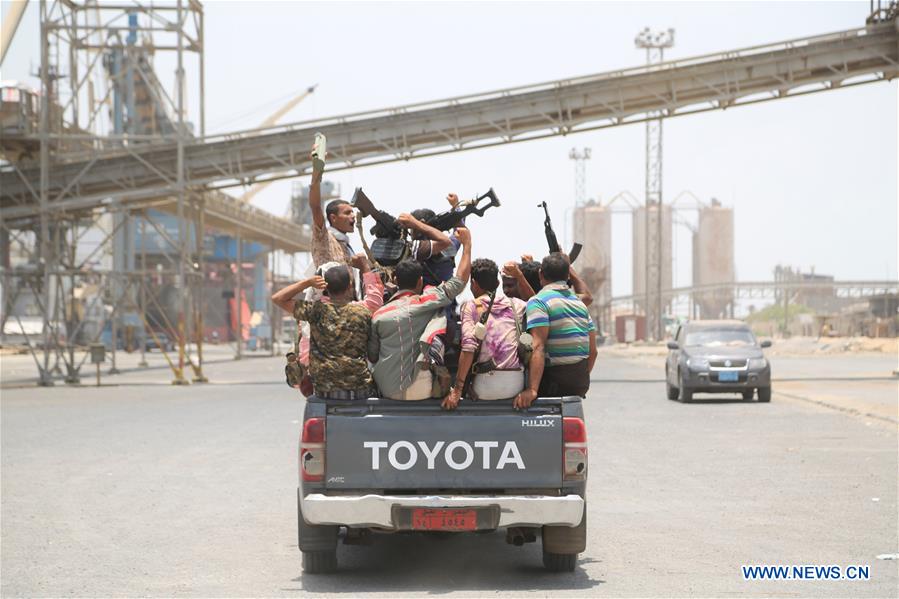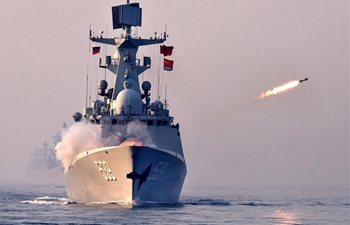 ?
?Houthi members ride a truck during their withdrawal at Salif port in Hodeidah, Yemen, on May 11, 2019. Yemen's Houthi rebels began on Saturday withdrawal from two ports of Hodeidah Province, eyewitnesses said. (Xinhua)
SANAA, May 11 (Xinhua) -- Yemen's Houthi rebels began on Saturday withdrawal from two ports of Hodeidah Province, eyewitnesses said.
Khalid al-Hawaki, a resident at al-Mina quarter of the port city of Hodeidah, told Xinhua by phone that dozens of military vehicles were seen carrying Houthi militias from the ports of Salif and Ras Issa and arriving at the center of Hodeidah city.
Hodeidah Province, main lifeline entry of most Yemen's commercial imports and humanitarian aid, has three ports along the Red Sea, namely Hodeidah main port for commercial imports, Salif for grain imports and Ras Issa for exporting crude oil.
A UN statement on Friday said Houthi rebels offered to withdraw unilaterally from the ports within four days beginning Saturday.
Mohammed Ali al-Houthi, head of the Houthi Supreme Revolutionary Committee, said his forces' withdrawal will begin at 10 a.m. local time (0700 GMT).
Ahmed al-Zabidy, a witness at Salif port, told Xinhua that a group of local coast guards wearing police uniforms took posts at the port after the withdrawal of Houthi militias, while a UN monitoring team was seen checking the port facility.
However, "it's more likely that the coast guards are loyal to the rebels," al-Zabidy added.
Meanwhile, Muammar al-Eryani, information minister of the Saudi-backed exiled Yemeni government, said the rebels' move apparently aims to "misinform the international community and the UN Security Council."
The redeployment "is inaccurate and misleading," al-Eryani wrote on the Twitter, referring to the coast guards who replaced Houthi rebels as loyalists to the Houthi group.
"The UN envoy Martin Griffiths told the Yemeni government that if the Houthis failed to withdraw from Hodeidah's three key ports within four days, he will brief the Security Council on the facts on May 15," al-Eryani added.
In addition, a government source said the Saudi-led coalition may seek "the green light from the United States to launch a large-scale offensive to recapture Hodeidah from the Iran-allied Houthi rebels."
The coalition, led by Saudi Arabia and the United Arab Emirates, intervened in Yemen's conflict in March 2015 to support the internationally recognized President Abd-Rabbu Mansour Hadi after Houthi rebels forced him and his government into exile in Riyadh, capital of Saudi Arabia.
The Stockholm Agreement, the first step toward a comprehensive political solution, was reached in December 2018 and focused on the port city of Hodeidah.
Both Yemeni parties have largely obeyed the cease-fire deal, but failed to withdraw forces from the city.
Hodeidah has been the focus of clashes since 2017.
The government forces have advanced to the southern outskirts of the port city, but the forces have halted a major offensive to recapture Hodeidah since June 2017 to pave the way for peace efforts.















